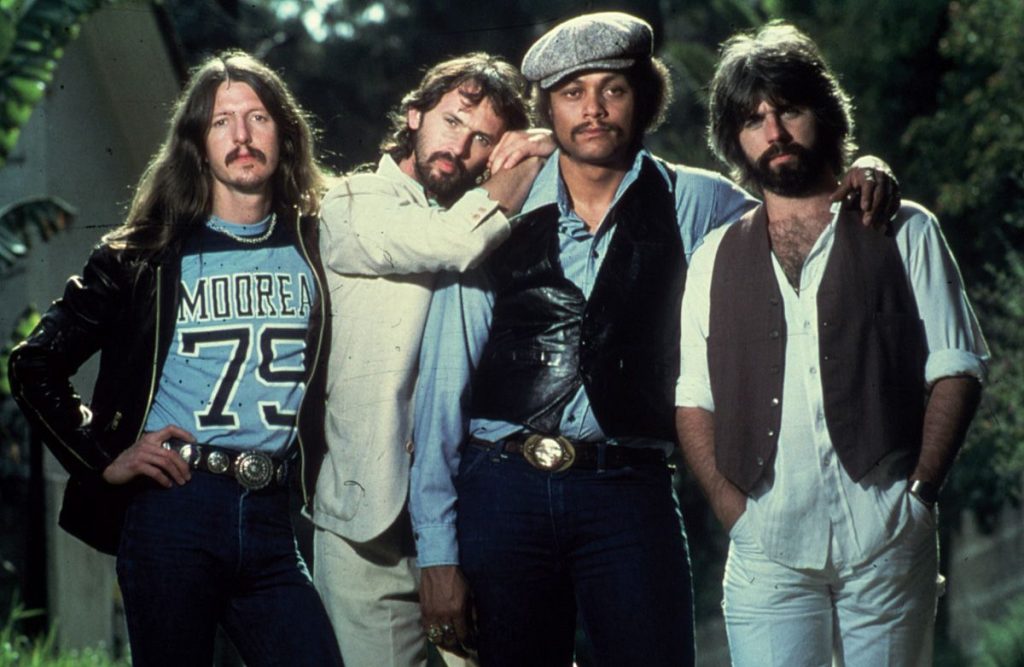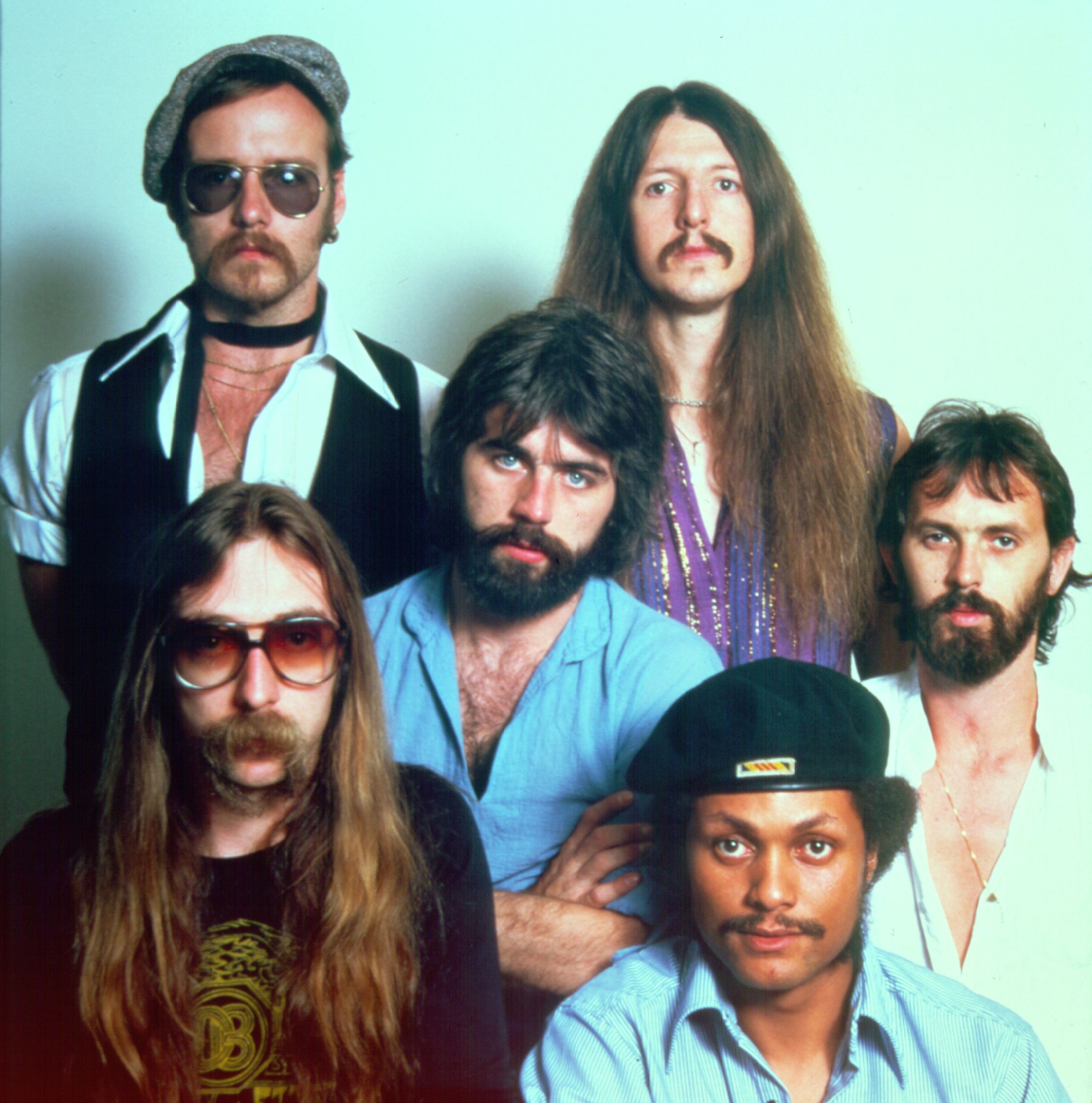
The Timeless Echo of Joy and Unity
“Listen to the Music” by The Doobie Brothers is more than just a song—it’s an anthem that encapsulates the essence of the early 1970s, a time when the world was eager to embrace positivity and unity. Released in July 1972 as part of their second album, “Toulouse Street,” this track quickly soared to popularity, capturing the hearts of many with its infectious rhythm and uplifting lyrics. Peaking at No. 11 on the Billboard Hot 100 chart, it marked a significant milestone for the band, establishing them as influential figures in the rock music scene.
At its core, “Listen to the Music” is a celebration of life’s simple pleasures, encouraging listeners to immerse themselves in the universal language of music. The song’s genesis can be traced back to lead vocalist and guitarist Tom Johnston, who penned it during a period of personal and musical exploration. Johnston was inspired by the transformative power of music and its ability to bring people together, regardless of their backgrounds or beliefs. This message is woven throughout the song’s upbeat melody and harmonious vocals, creating an atmosphere that is both nostalgic and forward-looking.
The early ’70s were a period of social upheaval and change. Against this backdrop, “Listen to the Music” served as a beacon of hope and camaraderie. It was a time when people were seeking solace from societal tensions, and music was often seen as a unifying force. The Doobie Brothers tapped into this sentiment perfectly. Their sound—a blend of rock, folk, and soul—resonated deeply with audiences yearning for connection and joy.
Listening to “Listen to the Music,” one is immediately struck by its rich instrumentation. The song opens with a distinctive guitar riff that sets an inviting tone, while layered harmonies build an irresistible groove. The rhythm section provides a buoyant foundation that propels the song forward, creating an experience akin to cruising down an open highway with the wind in your hair—a quintessentially American image that evokes freedom and optimism.
The Doobie Brothers themselves were emblematic of this optimistic era. Formed in San Jose, California, in 1970, they quickly gained a reputation for their dynamic performances and versatile sound. With “Listen to the Music,” they managed to capture lightning in a bottle, crafting a track that remains timeless even decades later. For those who lived through that era, hearing the song today can evoke vivid memories of youthful exuberance and carefree days spent basking in sunshine.
The lyrics themselves are straightforward yet profound: they invite everyone to let go of their worries and simply enjoy the moment through music. This simplicity is part of what makes “Listen to the Music” so enduring; its message transcends generations, reminding us all that sometimes we need only pause and appreciate the beauty around us.
Moreover, “Listen to the Music” holds a special place in popular culture due to its frequent appearances in films and television shows over the years. Each time it plays, it brings with it a wave of nostalgia—an auditory reminder of days gone by when life seemed simpler.
In reflecting on “Listen to the Music,” one cannot help but feel a sense of gratitude for songs like these that remind us of our shared humanity. For older generations who grew up with this track playing on their radios or turntables, it’s more than just music—it’s a piece of their history.
In conclusion, “Listen to the Music” by The Doobie Brothers remains an enduring classic because it speaks directly to our hearts with its joyful message and captivating soundscapes. It invites us all—young and old—to take a moment out of our busy lives to connect with one another through song. As long as there are ears willing to listen and spirits open enough to dance along with its rhythms, this timeless tune will continue casting its spell over new audiences worldwide.
